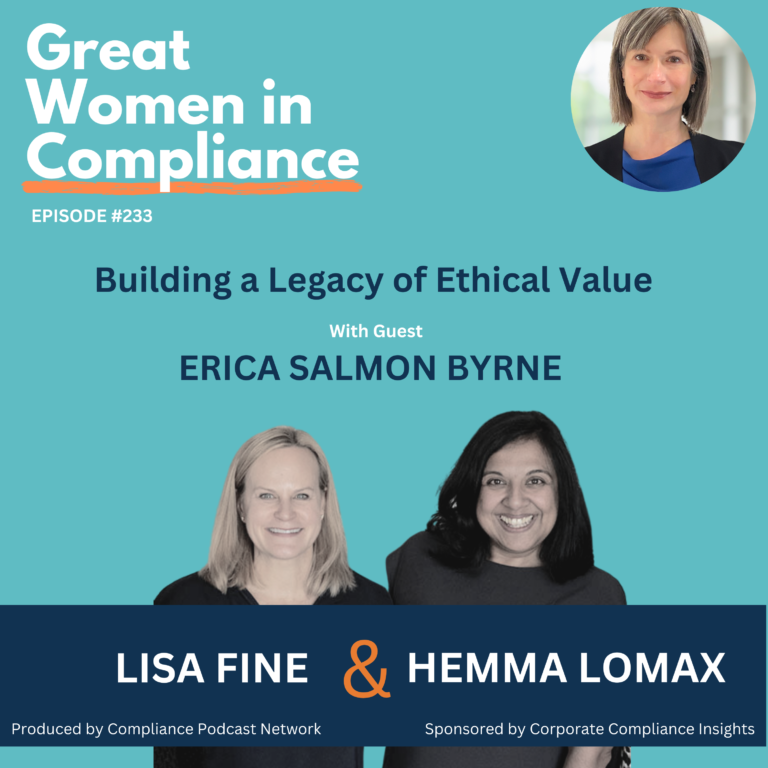Author: Erica Salmon Byrne, J.D.

If you’ve ever heard me talk about an ethical speak up culture, you’ll know my favorite mantra: managers matter. They are essential to fostering a culture of compliance where employees feel comfortable sharing concerns. When employees believe that they can speak up and be heard, they are more inclined to share their ideas and inspirations, which leads to a more innovative workplace.
As an example, I would point to David Brooks’ latest New York Times opinion piece titled “The Quiet Magic of Middle Managers.” In that, he speaks to the manager’s role in ethical leadership by creating an environment where employees can be their best selves, by being attentive, by guiding through actions, and by showing “daily acts of consideration,” among other characteristics.
Managers are dealing with a lot of pressure these days, particularly when you read that middle managers made up more than 30% of recent job cuts. The question for many in leadership is, how do you support your managers? For starters, senior leaders can be intentional about creating an environment of organizational accountability. This boils down to four key behaviors: who you hire, fire, praise, and promote.
Our data shows that the top reasons employees will not report misconduct include fear of retaliation and the belief that nothing will be done if they report. So how do you convince employees that it is ok to speak up? Managers.
Our data shows that when employees do speak up, they want to talk with a person, and more than 56% turn to their managers. It’s vital, however, that your managers are equipped to have conversations with employees about the value of ethics, and ways to combat workplace retaliation.
Managers should listen well, pay attention to their teams, and appreciate small gestures, as Brooks recommends. This is where the organization itself can play an important role in supporting this approach.
Steve Koslow from Allianz Life discusses their Hear Me/I’m Listening campaign in a recent Ethicast episode. The campaign aims to encourage people to speak up. It promotes a culture of open communication. In short, they recognized how important it is to get people speaking up and built a full program to support those efforts.
So much more can be said about this.
We held multiple sessions talking about culture at the Global Ethics Summit, from main stage plenary discussions on the data in our culture set and the importance of transparency to break out sessions on empowering managers, but this culture definition came from my day one conversation with Matt Galvin. If you start from that definition of culture, and you assume there is no world in which you don’t have problems, then you aim for a world where you identify problems before they metastasize into something bigger. Measuring your culture – identifying the worst behavior your organization will tolerate – gives you a chance to focus your limited resources where they can have the greatest effect.

A strong culture of ethics and integrity is the first and best way to succeed in the ethics economy. In our Spring Issue of Ethisphere Magazine, Spotlight on Ethical Culture, we showcase the Data & Services team’s insights on the culture measurement process as well as other great stories that highlight additional best practices, including:
- The Merits of Measurement by Curtis Leicht (Ethisphere)
- Data and Details by Emilie Anderson (Ethisphere)
- You’ve Measured Your Culture…Now What? by Doug Allen (Ethisphere)
- Diving Into Demographics by Katie Kruger (Ethisphere)
- Storytelling is Your Ethics Superpower with Joe Rodgers (Eaton)
- Advancing Speak Up Environment by Creating a ‘Hear Me/I’m Listening Culture by Steve Koslow (AllianzLife)
In the meantime, think about how you can empower your managers. And if you are a manager, thank you – keep up your important work.

